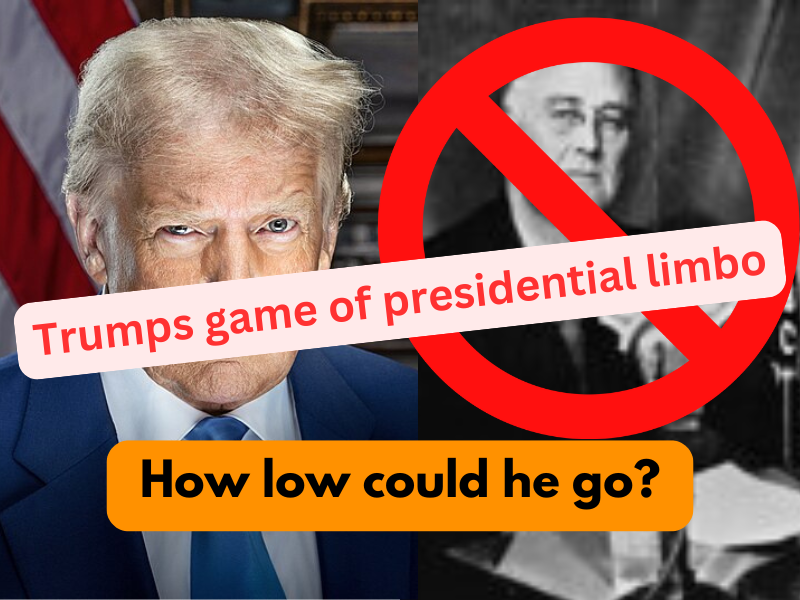
The Echoes of History: WWII, Modern Alliances, and the Looming Shadows of Expansion
Share
A Glimpse into the Past:
WWII Attacks
World War II was a period of unprecedented conflict and devastation. Germany, under Adolf Hitler, launched a series of aggressive attacks that reshaped the geopolitical landscape of Europe. The blitzkrieg tactics led to rapid conquests, including the fall of Poland, France, and several other nations.
On the other side, the Soviet Union, initially in a non-aggression pact with Germany, found itself under attack by Germany with Operation Barbarossa in 1941. The Soviet counteroffensives, particularly the Battle of Stalingrad, marked a turning point in the war.
Modern Parallels: Trump, Russia, and China
Fast forward to today, and the echoes of past conflicts resonate in the actions of modern leaders. Former U.S. President Donald Trump's policies have stirred fears of betrayal among allies. While the alliances are beginning to look a lot different, the powers controlling them have ambitious plans. Trump's administration's moves, such as the controversial stance on Ukraine and closer ties with Russia, have raised eyebrows. Meanwhile, Russia's ongoing invasion of Ukraine and its alliance with China have created a formidable geopolitical block.
The Strategic Triangle: Russia, China, and the U.S.
The alliance between Russia and China is not just a political maneuver but a strategic one. Both nations share a common goal of countering Western influence and have found mutual benefits in their partnership. This alliance, coupled with Trump's expansionist ideas, has placed Canada in a precarious position. With Russia and China as Arctic neighbors and the U.S. to the south, Canada finds itself strategically pinned. So if they decided to invade together, they could become quite a problem for Canada and European regions. While China has been focused on their economy and striving to create trade opportunities they seem less likely to attack another large nation that is important to their economic growth. It still leaves the trio as being the three most powerful countries, all with expansionist ideologies. China's main "prize" doesn't seem to be aligned with Trump's or Putin's in that sense either. However, Trump has also been attempting to create deals with India, the fourth most powerful country. But, India seems to have the same economic ideology as China and sees the value in trade partners and new opportunities. Would it be possible that Trump and Putin could ask for some "loans" or military assistance though from China and India? Its hard to say if they would fund an attack, unless Trump was able to create more division around the world, like he has already over Russia and Ukraine and his Gaza Strip disaster. Canada has worked hard to create trade deals with China and are long time economic partners. It would be hard for Canadians to think China would go along with this idea because we have had such a long standing relationship. We can only continue to keep our trade door open. Removing or revising sanctions that had just been place on China. We need to keep a trusting relationship with our allies and global partners.
The European and Canadian Response
European nations and Canada have been vocal in their support for Ukraine, pushing back against the notion that Ukraine should cede territory. The European Committee of the Regions has been particularly active, emphasizing the need for unwavering support for Ukraine. Proposing peace deals, giving military and economic aid, and imposing sanctions onto Russia.
The Striking Similarities To WWII
The similarities between World War II and today's global conflicts are striking. Both eras are marked by intense geopolitical tensions, alliances, and blocs that shape international relations. Aggressive territorial ambitions, economic strains, and the rise of nationalist and authoritarian regimes further exacerbate the situation. Regional conflicts have the potential to escalate into broader global crises. Learning from history is crucial to navigating these complexities and avoiding the mistakes of the past. Through collaboration and mutual respect, we can strive for a more stable and peaceful world.
The Economic Perspective: A Global Resource System
In the face of these geopolitical tensions, a more sustainable approach would be to create a global system that circulates resources rather than expanding territories. Expansionist policies may offer short-term gains, but they ultimately lead to isolation and economic stagnation. A collaborative approach, where countries trade resources and foster economic interdependence, is a wiser strategy for long-term prosperity.
○●○●○●○●○
🤦♀️Trump might as well piss on his predecessors graves, pretending to do something as revolutionary as Franklin Roosevelt, while un-doing the work and wars fought by Americans and their allies. The constitution was BUILT to avoid all this "waste and fraud " that DOGE is failing to find after firing thousands of people out of speculation. They removed the organizations protesting the people from fraud and abuse. President Franklin Roosevelt envisioned the UN, to create not just security for America but for their allies and trade partners. Pushing a peace ideology and opening prosperous trade opportunities around the world. What one President did to secure America and countries around the world, has been thrown in the trash by expansionist and global totalerism dictator ideology. Trump.
🌐
The lessons of history remind us that aggressive expansion and betrayal lead to conflict and instability. As the world navigates these complex geopolitical waters, the focus should be on building alliances, fostering economic cooperation, and ensuring that the mistakes of the past are not repeated. Only through collaboration and mutual respect can we hope to achieve lasting peace and prosperity.
Resources and further reading below👇